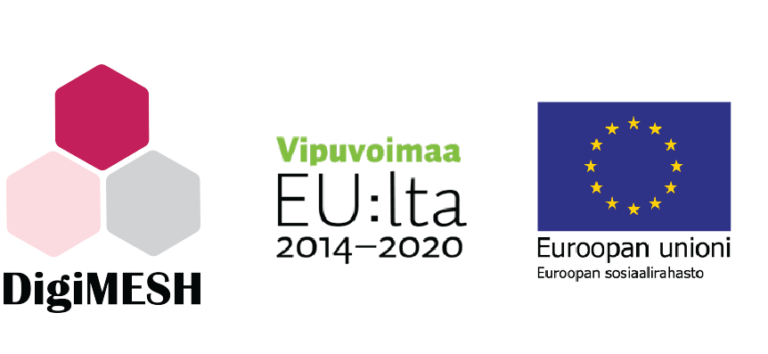Supporting immigrants’ career development – online course as a tool

In recent years, Finnish public discourse has highlighted the country’s skewed age structure and the challenging dependency ratio and labor shortage it brings with it. A most common suggested solution has been related to supporting work-based immigration.
The number of immigrants has grown considerably in Finland in the 2010-2020s. One might assume that this development will lead to immediate results in employment, but of course it is not that simple. From research reports and social media, we read about the difficulties that almost every international expert moving to Finland faces, although the strengths of Finnish society are also recognized.
Challenges in settling into the country
When settling into the country, a person learns – at least in the long term – the Finnish language, which differs considerably from the world’s major languages. It is necessary to acquire information about the competence requirements for one’s own profession too. Often a degree completed in another country must be updated so that it can be used as a basis to practice a profession in Finland. Also, you must face the Finnish bureaucracy, which is perceived as a double-edged sword. It steers forward but can also hurt with its regulatory coldness and sharpness. You need to learn the social codes of Finnish working life and network with goal-oriented actions to find a job in a country where there are a lot of hidden work positions. The challenges described above are mostly internationally recognized phenomena, but in this blog, I am assessing issues especially in Finnish context.
No matter what your perspective on work-based immigration is, the key issues are the ways and structures by which society supports newcomers and opens its work culture to others. This was noticed when TAMK, Turku University of Applied Sciences and LAB University developed networking to support career development in the MESH project implemented in 2018–2021. Although those years, marked by the Corona restrictions, did not offer the best operating environment for either work-based immigration or developing networking, the project was quite successful. Under the pressure of circumstances, the steps of networking were born.
MOOC boosting immigrants’ digital networking skills
In 2022, Tampere and Turku areas decided to keep refining the networking model in the DigiMESH project (REACT-EU, ESF). Now the focus is on supporting immigrants’ digital networking. Using modern technology, digital pedagogy and the internet, the project develops and reports on agile practices that support immigrants’ career development. DigiMESH project is preparing a master’s level MOOC (massive open online course) together with its partners. The target is to offer knowledge and learning material, which can be utilized in companies, municipalities, and NGOs too. If necessary, the course can also be included into a specific degree programmes or workplace trainings.
The MOOC course includes 5 units:
- Networking STEPS model
- Kieliosaaminen verkostoitumisessa (in Finnish)
- Digital recruitment: an organization’s perspective
- Online presence as a jobseeker
- How to support clients in digital networking?
The course content uses theoretical and practical examples to present networking steps that support career development. In addition, the course examines the career development of immigrants from the perspectives of recruiting organizations and professional supervisors. The course aims to strengthen participants’ digital networking knowledge and skills. The MOOC is mainly in English, but it also includes a section that delves into the importance of language in networking. In this section, in addition to English, Easy Finnish is used.
The aim is that university students and highly educated jobseekers can utilize the course contents for longer time. Hopefully also organizations recruiting employees and professionals to support immigrants find the course useful. MOOC will be piloted at Tampere and Turku Universities of Applied Sciences in spring 2023. Based on the feedback received from the pilots, the necessary adjustments will be made to the course. The course will be made open for everyone no later than in autumn 2023, before the end of the DigiMESH project. According to current plans, Tampere University of Applied Sciences will coordinate the MOOC course after the project.
If you are interested in participating in the coming spring pilot courses in Tampere or Turku, please contact me or other team members of the DigiMESH project. Welcome aboard!
Writer: Minna Niemi, Project Manager, Tampere University of Applied Sciences
Photo: ConvertKit / Unsplash
